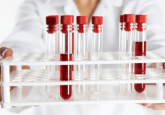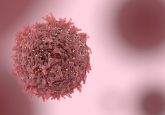New technology enhances precision of biomarker analysis
Researchers from the University of Helsinki (Finland), in collaboration with the University of Tartu (Estonia) and the Karolinska Institute (Stockholm, Sweden), have developed a novel genetic testing technology to improve the precision of clinical biomarker analysis. The technology is expected to be introduced into the healthcare system this year as an endometrial receptivity test pending the approval of its patent.
In the study, published in Genetic Medicine, the team introduce the new technology of targeted allele counting by sequencing (TAC-seq) and highlight some of its potential applications. The technique precisely measures the number of DNA and RNA molecules used as biomarkers in clinical samples, which is used to determine a patient’s state of health.
There are currently thousands of biomarkers-based tests used in clinics that measure DNA and gene expression to provide information about a patient’s state of health. However, there is a need for more precise and affordable clinical tests in the healthcare system.
“Ordinarily, in clinical samples, the DNA has to be amplified using the polymerase chain reaction method to ensure material for the next-generation sequencing, otherwise it isn’t measurable by instruments,” explained Hindrek Teder, the University of Tartu. “However, it is not known how many copies are created of a given original molecule and thus the results are inaccurate. With TAC-seq, we can identify and remove all of the artificial copies made in the lab, and the corrected biomarker values reflect the clinical sample with maximum reliability.”
Three possible applications of TAC-seq were highlighted in the study. The first application involves the use of the endometrial receptivity test to determine the optimum time to implant an embryo during IVF treatment by measuring the levels of specific RNA molecules. TAC-seq could also be used for non-invasive prenatal genetic testing to study cell-free DNA in the female’s blood to detect the most common chromosomal disorders in the fetus. Finally, the technique could also be used for precise microRNA profiling in various body fluids to detect several conditions without performing a biopsy.
“Advanced and precise diagnostic tools help women with recurrent implantation failures. We see that the implantation window is different in patients and should be taken into account in IVF treatment. The general IVF quality could be improved if individual embryo transfer timing and drug dosage are taken into account,” commented Tiina Hakala-Ala-Pietilä, Mehiläinen (Helsinki, Finland).
TAC-seq has the potential to broaden possibilities in research laboratories and clinics by providing the first ultra-precise and affordable solution to biomarker analysis. Kaarel Krjutškov, University of Helsinki, concluded: “First, we conducted thorough fundamental research, then we filed for an international patent. Now we have published our results, describing the various facets of the method’s applications and the most important thing – the method is in progress of integration into the healthcare system.”
Sources: Teder H, Koel M, Paluoja P et al. TAC-seq: targeted DNA and RNA sequencing for precise biomarker molecule counting. Genome Med. 3(34), (2018); www.helsinki.fi/en/news/health-news/new-genetic-testing-technology-enhances-precision-of-analysis-of-clinical-biomarkers






